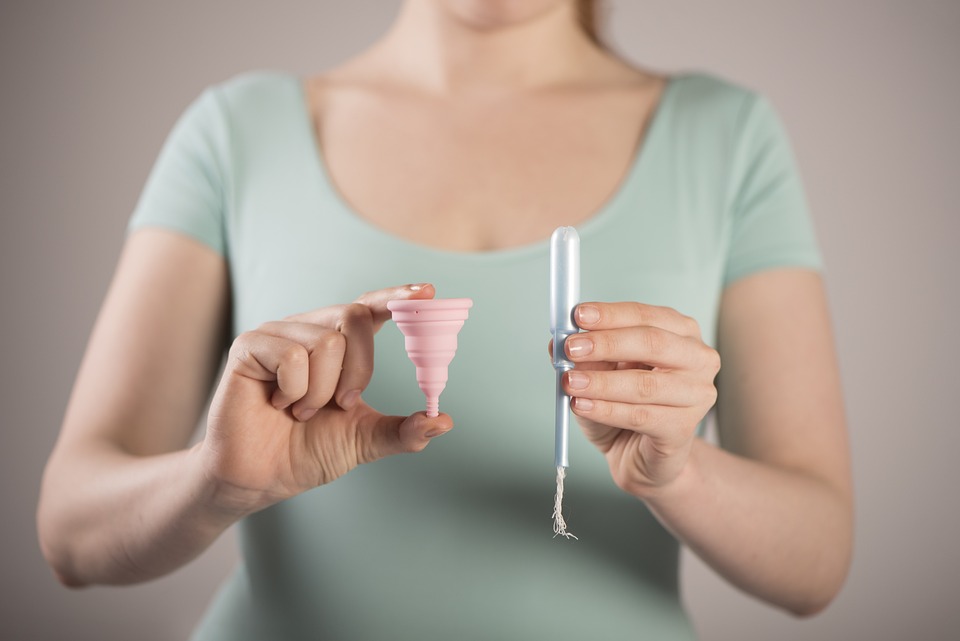
During a period, the lining of the uterus, or womb, is shed through the vagina. This results in bleeding that typically lasts for several days, although the length and heaviness of the bleeding can vary from woman to woman.
The menstrual cycle is controlled by a complex interplay of hormones, including estrogen and progesterone. These hormones are produced by the ovaries, which are the reproductive organs that release an egg each month as part of the menstrual cycle. If the egg is fertilized by sperm, it may implant in the lining of the uterus and result in pregnancy. If the egg is not fertilized, the lining of the uterus is shed through the vagina as a period.
The length of the menstrual cycle can vary from woman to woman, but it typically lasts around 28 days. However, cycles can range from 21 to 35 days, and some women may experience irregular cycles. The length and heaviness of periods can also vary, and may be influenced by factors such as age, hormonal changes, and underlying health conditions.
While periods are a natural and normal part of the menstrual cycle, they can be associated with discomfort and other symptoms. Common symptoms of menstruation include cramps, bloating, headaches, mood changes, and breast tenderness. Some women may also experience heavy bleeding or prolonged periods, which can impact their daily activities and quality of life.
Causes of Delayed Period
A delayed period occurs when a woman’s menstrual cycle is longer than usual, or when she misses a period altogether. Menstrual cycles typically last around 28 days, although the length can vary from woman to woman. A delay of up to seven days is considered normal, but if a woman’s period is more than a week late, it may be a cause for concern.
There are many possible causes of a delayed period, including pregnancy, stress, hormonal imbalances, weight changes, medications, and menopause.
- Pregnancy: If a woman is sexually active and has missed a period, pregnancy is the most common cause. A missed period is often the first sign of pregnancy. This is because pregnancy causes a surge in the hormone human chorionic gonadotropin (hCG), which can disrupt the normal menstrual cycle.
- Stress: Physical or emotional stress can disrupt the hormonal balance in the body, which can cause a delay in the menstrual cycle. Stress can include factors such as illness, excessive exercise, changes in sleep patterns, or major life events such as a move or job change.
- Hormonal imbalances: The menstrual cycle is regulated by hormones, and imbalances in these hormones can cause a delay in the period. Conditions such as polycystic ovary syndrome (PCOS) and thyroid disorders can disrupt the hormonal balance and cause irregular periods.
- Weight changes: Significant weight gain or loss can affect hormone levels and cause a delay in the menstrual cycle. This can occur in conditions such as anorexia or bulimia, as well as in individuals who engage in extreme dieting or exercise.
- Medications: Certain medications, such as hormonal contraceptives, can cause a delay in the period. Additionally, some medications used to treat conditions such as depression or epilepsy can affect hormone levels and cause irregular periods.
- Menopause: As women approach menopause, their periods may become irregular or stop altogether. Menopause typically occurs between the ages of 45 and 55.
It is important to speak with a healthcare provider if a woman is experiencing a delayed period. They can help to identify any underlying health conditions or factors that may be contributing to irregular cycles, and can recommend appropriate treatments or strategies to help regulate the menstrual cycle.
How To Get Your Period In One Hour
There are several ways to trigger your period in one hour if there are no underlying issues, there are also some natural ways to encourage a delayed period to start, these include:
- Exercise: Engaging in physical activity can help to reduce stress and balance hormone levels in the body, which can help to regulate the menstrual cycle. Here are some types of exercise that may be beneficial for menstrual health:
- Yoga: Practicing yoga can help to reduce stress, promote relaxation, and improve blood flow to the pelvic region. Certain yoga poses, such as the supported bridge pose, can help to stimulate the ovaries and promote the onset of menstruation.
- Aerobic exercise: Engaging in regular aerobic exercise, such as running, cycling, or swimming, can help to reduce stress levels and balance hormone levels in the body. This can help to promote a regular menstrual cycle and reduce the risk of menstrual irregularities.
- Strength training: Building muscle mass through strength training can help to improve insulin sensitivity and hormone balance, which can promote regular menstrual cycles. However, it is important to avoid overtraining or excessive exercise, as this can disrupt hormone levels and lead to irregular cycles.
- Pilates: Practicing Pilates can help to improve core strength and posture, which can reduce menstrual cramps and other menstrual symptoms. Pilates can also help to reduce stress levels and promote relaxation, which can help to regulate the menstrual cycle.
- Dancing: Engaging in rhythmic and expressive movement through dance can help to reduce stress levels and promote relaxation, which can promote menstrual regularity. Additionally, certain dance styles, such as belly dance, may help to stimulate the pelvic region and promote the onset of menstruation.
- Stress management: Stress can disrupt the hormonal balance in the body and delay the menstrual cycle. Here are some stress management techniques that may help to promote menstrual regularity:
- Mindfulness meditation: Practicing mindfulness meditation can help to reduce stress levels and promote relaxation, which can help to regulate the menstrual cycle. Mindfulness meditation involves focusing on the present moment and accepting thoughts and feelings without judgment.
- Breathing exercises: Deep breathing exercises can help to reduce stress and promote relaxation by slowing down the heart rate and calming the nervous system. Taking slow, deep breaths can help to reduce anxiety and promote a sense of calm.
- Yoga: Practicing yoga can help to reduce stress levels and promote relaxation, which can help to regulate the menstrual cycle. Certain yoga poses, such as the supported bridge pose and the seated forward fold, can help to stimulate the ovaries and promote the onset of menstruation.
- Aromatherapy: Certain scents, such as lavender and chamomile, have been shown to promote relaxation and reduce stress levels. Using essential oils or aromatherapy diffusers may be a helpful way to promote relaxation and reduce stress.
- Massage: Receiving regular massages can help to reduce stress levels and promote relaxation, which can help to regulate the menstrual cycle. Massage can also help to relieve menstrual cramps and other menstrual symptoms.
- Herbs and supplements: Certain herbs and supplements, such as ginger, turmeric, and chamomile, may have anti-inflammatory or hormonal-balancing effects that can help to regulate the menstrual cycle. However, it is important to speak with a healthcare provider before taking any new supplements or herbs to ensure they are safe and effective for your individual needs.
- Warm compress: Applying a warm compress to the lower abdomen can help to increase blood flow and promote relaxation, which may help to stimulate the onset of menstruation.
- Vitamin C: Some people believe that consuming high doses of vitamin C can help to induce a period. While there is limited scientific evidence to support this claim, vitamin C may help to increase estrogen levels in the body, which can help to promote the onset of menstruation.




